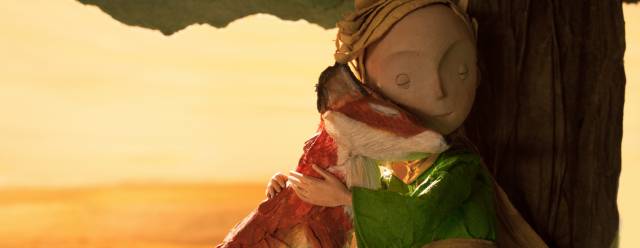
 Imagine if someone took a delicate rose and tried to preserve its beauty by photocopying it. That ought to give you an idea of what it’s like to sit through The Little Prince, an animated adaptation of Antoine de Saint-Exupéry’s classic that forgets that simplicity is what made the novella so timeless. The screenplay by Irena Brignull and Bob Persichetti, from a story by Mark Osborne who also directed the film, takes Saint-Exupéry’s tale and uses it as the base for an overcooked dish that perfectly encapsulates how audiences have become so used to having everything digested for them.
Imagine if someone took a delicate rose and tried to preserve its beauty by photocopying it. That ought to give you an idea of what it’s like to sit through The Little Prince, an animated adaptation of Antoine de Saint-Exupéry’s classic that forgets that simplicity is what made the novella so timeless. The screenplay by Irena Brignull and Bob Persichetti, from a story by Mark Osborne who also directed the film, takes Saint-Exupéry’s tale and uses it as the base for an overcooked dish that perfectly encapsulates how audiences have become so used to having everything digested for them.
The tale of the WWI pilot who meets the mysterious Little Prince in the desert and learns how to see the world with his heart instead of his eyes, is given an elaborate framing device which sees the little girl (Mackenzie Foy) challenge the rigid system her mother (Rachel McAdams) wants to impose on her. Behind her mother’s back the little girl befriends her “loony” neighbor referred to merely as the Aviator (Jeff Bridges), who then proceeds to tell her about the regal child from outer space he met when he was a young man. Slowly the little girl begins to break free of the schedules and tasks her mother has given her to become a free spirit.
Scenes of the little girl’s emancipation are interspersed with an actual telling of Saint-Exupéry’s tale which unlike the blandness of the little girl’s CGI world, is told through claymation, puppetry and hand drawn animation. Those scenes are absolutely breathtaking and make one wonder why Osborne and company felt the need to expand the story into the 108-minutes-long excruciating odyssey it becomes. The answer is of course, a feature length makes money, an artful short film does not, the film then set itself to go against its own message from the start.
When to this you add the inevitable sexism that comes from turning the single mother into a villainous figure preoccupied only with her daughter’s success in the capitalistic world (we are never invited to wonder where the father is, or why the mother thinks this is what’s best for her daughter), and it becomes clear that the filmmakers were so obsessed with the technical wizardry, that they lost focus of the book’s tender philosophy. Afraid that audiences wouldn't get Saint-Exupéry they add preposterous subplots that make the film feel as unsophisticated as most of the animated sequels that are released each summer, allowing the message to get lost in translation. Fans of the novella will feel as if their beloved tale is being interpreted by a robot, while people new to The Little Prince might be better off heading to their library or bookstore and sitting down with the real thing.